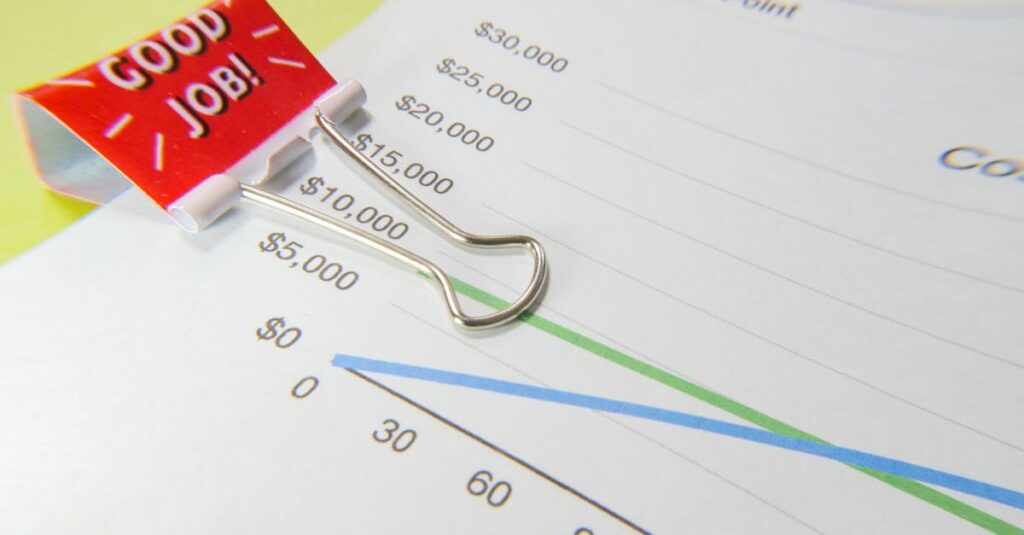As a resident of Omaha, I’ve seen how sales tax impacts both businesses and consumers in our vibrant city. Understanding Omaha’s sales tax structure is crucial whether you’re running a local business or simply shopping in the metro area.
The current sales tax rate in Omaha stands at 7.5%, which combines Nebraska’s state tax and the city’s local tax rate. I’ve noticed that many newcomers and business owners often struggle to navigate the various exemptions and special provisions that make up our local tax system. That’s why I’ll break down everything you need to know about Omaha’s sales tax, including recent changes, exemptions, and how it compares to neighboring cities.
Omaha SalesT tax
- Omaha’s total sales tax rate is 7.5%, combining Nebraska’s state tax (5.5%) and the city’s local tax rate (2.5%)
- Essential items like groceries, prescription medications, and certain manufacturing equipment are exempt from Omaha sales tax
- Special districts within Omaha (Capitol, Riverfront, Blackstone, etc.) charge additional taxes ranging from 0.5% to 1.95% on specific purchases
- Sales tax revenue funds critical city services, with significant allocations to infrastructure (35%), police services (22%), and fire department (19%)
- Businesses must register with both Nebraska Department of Revenue and City of Omaha, maintaining detailed records for 3 years
- Tax filing frequencies vary based on sales volume: monthly (over $3,000/month), quarterly ($900-$3,000/month), or annually (under $900/month)
Understanding Omaha Sales Tax Rates
Omaha’s sales tax structure combines state-mandated rates with local tax provisions to fund essential city services. The tax system operates on multiple levels with distinct rates for different jurisdictional authorities.
Current City Tax Rate
Omaha’s city sales tax rate stands at 2.5%, implemented since 2010. Local retailers collect this municipal tax on qualifying purchases made within city limits. This revenue supports:
- Public infrastructure maintenance
- Emergency services funding
- Parks & recreation facilities
- Municipal transportation systems
- Local development projects
State and Combined Tax Rates
Nebraska imposes a state sales tax rate of 5.5% which combines with Omaha’s local rate. Here’s the current breakdown:
| Tax Component | Rate |
|---|---|
| State Tax | 5.5% |
| City Tax | 2.5% |
| Total Rate | 7.5% |
Key aspects of the combined rate include:
- Application to most retail goods
- Food items remain tax-exempt
- Prescription medications carry zero tax
- Manufacturing equipment receives specific exemptions
- Business-to-business services follow distinct guidelines
- Higher than Lincoln (7.25%)
- Lower than Council Bluffs (8%)
- Equal to Bellevue (7.5%)
- Competitive with regional metropolitan areas
What Items Are Taxable in Omaha
Omaha’s sales tax applies to most retail transactions of tangible personal property including clothing electronics furniture. Understanding which items fall under taxation requirements helps businesses maintain compliance with local regulations.
Exempt Goods and Services
These categories of goods and services are exempt from Omaha sales tax:
- Food items for home consumption including groceries fresh produce dairy products
- Prescription medications medical devices prescribed by licensed practitioners
- Agricultural equipment seeds livestock feed for commercial farming
- Manufacturing machinery used directly in production processes
- Newspapers periodicals published at regular intervals
- Educational materials purchased by schools nonprofit institutions
- Raw materials used in manufacturing processes
- Nonprofit organization purchases with valid exemption certificates
- Capitol District: Additional 1.95% tax on prepared food beverages lodging
- Riverfront Business District: Extra 1.5% tax on retail sales entertainment services
- Blackstone District: Supplemental 1% tax on retail purchases dining
- Aksarben Village: Added 1% tax on commercial transactions within boundaries
- Old Market District: Special 0.5% tax on retail sales dining entertainment
| District Name | Additional Tax Rate | Applies To |
|---|---|---|
| Capitol | 1.95% | Food, Lodging |
| Riverfront | 1.5% | Retail, Entertainment |
| Blackstone | 1.0% | Retail, Dining |
| Aksarben | 1.0% | Commercial Sales |
| Old Market | 0.5% | Retail, Dining |
How Omaha Sales Tax Revenue Is Used
Omaha’s sales tax revenue directly funds essential city operations through strategic allocation to various municipal programs. The city collected $204.8 million in sales tax revenue during fiscal year 2022.
City Infrastructure Projects
Sales tax funds support critical infrastructure development across Omaha’s metropolitan area. The revenue allocation includes:
- Road maintenance projects: 35% of total sales tax revenue
- Bridge repairs: $12.3 million annually
- Sewer system improvements: $18.5 million dedicated funding
- Public facility renovations: 15% of collected revenue
- Transportation infrastructure: $25.4 million yearly allocation
Public Services Funding
The distribution of sales tax revenue maintains core public services throughout Omaha. Key funding areas include:
| Service Category | Annual Allocation | Percentage of Revenue |
|---|---|---|
| Police Services | $45.2 million | 22% |
| Fire Department | $38.7 million | 19% |
| Parks & Recreation | $15.6 million | 7.6% |
| Library System | $12.4 million | 6% |
| Public Transit | $8.9 million | 4.3% |
The allocation system prioritizes:
- Emergency response capabilities
- Community safety programs
- Public space maintenance
- Youth recreation services
- Senior citizen programs
- Public transportation operations
These investments strengthen Omaha’s municipal services while maintaining fiscal responsibility through dedicated funding streams.
Filing and Paying Sales Tax in Omaha
Businesses operating in Omaha must register for sales tax collection with both the Nebraska Department of Revenue and the City of Omaha. The filing process requires adherence to specific timelines and procedures to maintain compliance with local tax regulations.
Registration Requirements
Businesses in Omaha need a Nebraska Sales Tax Permit before collecting sales tax. Here’s the essential registration criteria:
- Complete Form 20, Nebraska Sales Tax Registration, through the Nebraska Department of Revenue website
- Provide basic business information including EIN, ownership structure and business address
- Submit a $20 non-refundable registration fee
- Register within 15 days of starting business operations in Omaha
- Maintain separate registration for each business location
Payment Deadlines and Procedures
Sales tax payments in Omaha follow a structured schedule based on tax liability:
| Filing Frequency | Annual Sales Volume | Due Date |
|---|---|---|
| Monthly | Over $3,000/month | 20th of following month |
| Quarterly | $900-$3,000/month | 20th of month after quarter ends |
| Annual | Under $900/month | January 20th |
Payment options include:
- Electronic filing through Nebraska’s e-file system
- Direct debit from registered bank account
- Credit card payments with 2.35% processing fee
- Paper returns with check payment for annual filers only
- Prepayment options for businesses with monthly liability over $10,000
- Complete Form 10, Nebraska and Local Sales and Use Tax Return
- Report gross sales figures
- List applicable deductions or exemptions
- Calculate tax due for state and local portions
- Include payment for full amount owed
Business Owner Responsibilities
Business owners in Omaha must follow specific procedures to maintain tax compliance. These responsibilities encompass accurate record keeping and precise tax collection methods to ensure adherence to local regulations.
Record Keeping Requirements
Omaha businesses must maintain detailed sales records for 3 years from the filing date. Essential documentation includes:
- Daily sales reports with itemized transactions
- Bank statements showing deposits of collected taxes
- Purchase invoices from suppliers
- Copies of filed tax returns (Form 10)
- Documentation for tax-exempt sales
- Monthly reconciliation statements
- Point-of-sale system reports
- Customer exemption certificates
- Calculate tax on the final sale price before discounts
- Display tax separately on receipts
- Round tax amounts to the nearest cent
- Apply tax to shipping charges for in-state deliveries
- Collect tax at point of sale for immediate purchases
- Document tax-exempt sales with valid certificates
- Submit collected taxes based on filing frequency:
- Monthly for sales over $3,000/month
- Quarterly for sales between $900-$3,000/month
- Annually for sales under $900/month
City’s Growth and Development
I’ve shown you how Omaha’s 7.5% sales tax plays a vital role in supporting our city’s growth and development. The system might seem complex but it’s designed to maintain essential services while keeping our city competitive in the region.
Whether you’re a business owner or resident understanding these tax regulations is crucial for compliance and financial planning. I encourage you to stay informed about local tax changes and take advantage of available resources through the Nebraska Department of Revenue.
For the most current information and specific guidance about your tax obligations I recommend consulting with a qualified tax professional or contacting the city’s revenue department directly.

